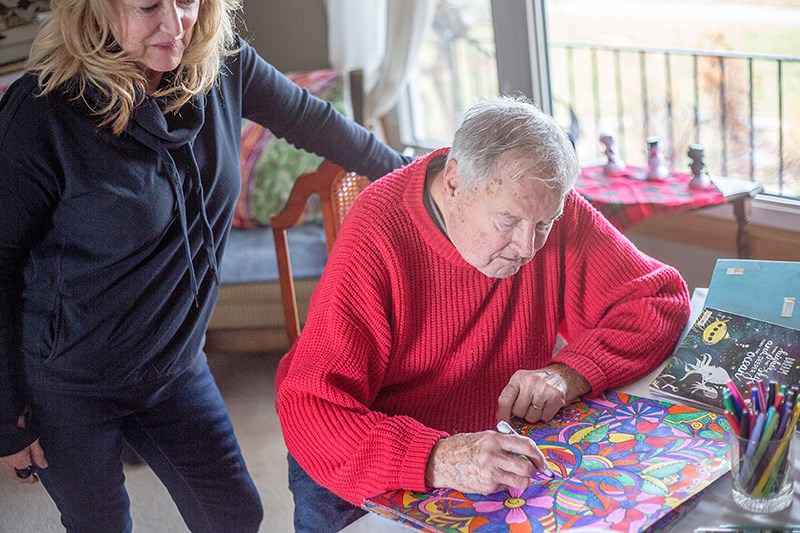Troy Shantz
Catherine Eyre doesn’t know what she and her father would do without the respite care they get from the Alzheimer’s Society Sarnia-Lambton.
James Wilfred Chaytor, 83, was diagnosed with Alzheimer's disease five years ago. He lives alone and Eyre, who manages a childcare centre full time, said he needs a helping hand.
“He’s had three new furnaces that he didn’t need,” Eyre said of sales people who have preyed on her father. “He also got new windows… he just said yes on the phone. Those kind of things really stress us out.”
Following the diagnosis the family learned of the society’s respite program. Twice a week a personal support worker visits Chaytor to ensure he’s eating well, taking his medication and exercising.
“If I wasn’t working full time I would want to be here more often,” she said. “I really wanted him to have somebody to just come over and talk, to socialize.”
About 40 families use the program regularly and get a personal support worker four hours a week, said Marie Marcy-Smids, the society’s director of funding and communications.
The program matches families based on the severity of the dementia and how burdened the family is.
“It’s not enough hours per month to be really meaningful for people, and our goal is to be able to provide people with as much respite care as they need,” she said.
The Erie St. Clair Local Health Integration Network (LHIN) provides funding for 600 hours per month, but the need is greater, Marcy-Smids explained.
Financing the program is the focus of the society’s Christmas campaign. Some participants pay $14 per hour for the service to offset the cost, but families who can’t afford it aren’t turned away.
The goal is enough donations to make the program sustainable and eventually grow it into a day program, she said.
The society offers various programs for dementia including exercise classes, art groups and social outings. But supporting families on the front lines is critical, Marcy-Smids said.
“It takes a lot out of the entire family. We try to teach them that because this is a long journey, they need to take care of themselves or they’re not going to be healthy at the end of that journey.”
